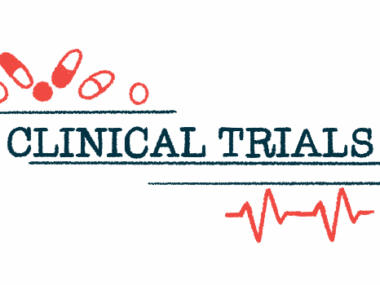Dosing of HAE gene-editing therapy NTLA-2002 begins in Phase 2 study
Trial recruiting in Netherlands, UK, and New Zealand, with more sites to come
Written by |

An experimental gene-editing therapy for hereditary angioedema (HAE), called NTLA-2002, has been administered to the first participant in the Phase 2 portion of a clinical trial, according to its developer, Intellia Therapeutics.
“We are pleased to announce dosing has begun in the Phase 2 study of NTLA-2002,” John Leonard, MD, president and CEO of Intellia, said in a company press release.
In HAE, swelling attacks are triggered by the excessive production of a signaling molecule called bradykinin. The production and release of bradykinin is controlled by a protein called kallikrein.
How does gene-editing therapy NTLA-2002 work?
NTLA-2002 is designed to lower bradykinin levels by reducing the levels and the activity of kallikrein. The gene-editing therapy works to disrupt the activity of the KLKB1 gene, which provides instructions for making a precursor of kallikrein in liver cells where the protein is mostly made.
Intellia is conducting a Phase 1/2 trial (NCT05120830) to test the safety and efficacy of NTLA-2002 in people with HAE. In the Phase 1 portion of the trial, all participants were given the experimental therapy at one of three doses. Early data from the first 10 patients in the Phase 1 portion of the study suggested the treatment was generally well-tolerated, with most patients not experiencing any swelling attacks in the months following treatment.
“We look forward to sharing new interim data from … NTLA-2002 first-in-human studies in the months to come,” Leonard said.
In the ongoing Phase 2 portion of the study, participants will receive one of two doses of NTLA-2002 or a placebo, and then will be followed for up to about two years. The main goal of this part of the study is to assess the effect of treatment on attack rates after 16 weeks (about four months).
The study is currently enrolling participants at locations in the Netherlands, the U.K., and New Zealand. Another site in France is expected to open in the future, and Intellia has secured permission to open sites in the U.S.
“Based on strong interest from investigators and patients, we expect to complete enrollment in the second half of this year,” Leonard said.
The U.S. Food and Drug Designation has granted NTLA-2002 orphan drug and regenerative medicine advanced therapy designations, which are meant to incentivize and accelerate the development of treatments for rare and serious conditions. The experimental therapy has also received the innovation passport from the U.K. Medicines and Healthcare products Regulatory Agency.






